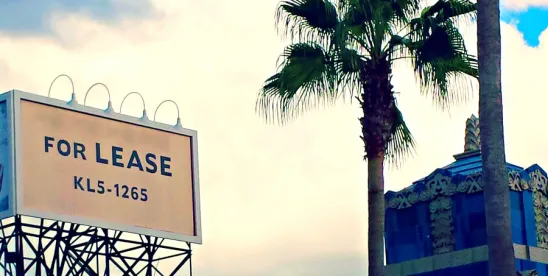We continue to be asked to explain how it is even possible that some leases can be ‘destroyed’ simply because the land being leased is sold.
So, it is timely we revisit and explain this lease ‘destruction’ risk and how you can respond to it.
So, What is Lease ‘Destruction’ Anyway?
It comes as a great surprise to some that in Western Australia (WA), the ‘destruction’ of any leases with a term of more than five years, as well as all options to renew a lease (irrespective of the lease’s length of term), can automatically result in the transfer of the land that is leased to a new landowner in certain circumstances.
Such ‘automatic lease destruction’ may well be considered a ‘good news’ result for some.
But for many others, such destruction will be considered ‘bad news’, even potentially disastrous news.
Fortunately, tenants, land buyers and financiers can follow basic steps to avoid this situation if they are at risk.
For Buyers of Land
Typically, buyers of land will consider a lease’s destruction to be at the ‘bad news’ end of the spectrum. This is especially if the land comes with a buyer’s expectation that a valuable lease will remain in place after they become the land’s owner.
For these land buyers, it is especially important they ensure their land purchase contracts contain, where necessary, the appropriate provisions to safeguard against valuable leases being inadvertently ‘destroyed’ by the very transfer of the land to them as the new landowners.
On the other hand, some land buyers may instead consider a lease’s destruction to be a ‘good news’ result, particularly if they either: want to become an owner and occupier themselves (i.e. by potentially removing the obstacle of an existing lease); or expect that the land’s value can be increased (i.e. by ‘destroying’ an existing lease’s burden on the land).
However, of concern to those land buyers who may consider a lease’s destruction to be at the ‘good news’ end of the spectrum, their right to treat a lease as ‘destroyed’ can then be effectively and easily lost due to various factors (for example due to their surrounding conduct as the land’s buyer and the specific terms of their relevant land purchase contract).
For Tenants Under Leases
Most tenants under leases, but not necessarily all, will consider such ‘destruction’ of their lease and any options purely due to a change in their landlord to be a ‘bad news’ outcome.
Exceptions to this being ‘bad news’, might include a situation where a tenant has a particularly onerous lease and would simply welcome any opportunity to exit the lease at the first available opportunity.
For Financiers
Financiers will generally consider the ‘destruction’ of a lease due to a change in ownership to be a ‘bad news’ outcome and one to be strictly avoided. This is especially true if it comes as a surprise and may adversely impact their security position.
Key Takeaways – What Can I Do?
If you are a buyer of land that is leased (or the buyer’s financier), you should consider:
- Does it matter to you if any leases may be ‘destroyed’ on the transfer of the land you are buying (or financing)?
- If yes, consider if you need to establish whether the leases of the land you are buying (or financing) could in fact be ‘destroyed’ on transfer, and if so, what you can do to best protect your desired position as buyer, including seeking legal advice.
If instead you are a tenant of land that may be sold (or the buyer’s financier), you should consider:
- Does it matter to you if the lease may be ‘destroyed’ on the transfer of the land?
- If yes, consider if you need to assess if the lease may potentially be ‘destroyed’, and if so, what you can do to optimise your desired position, including seeking legal advice. Any advice will usually, although not always, be to have the lease registered, and failing that, at least to have the lease and any lease renewal options properly caveated on the land’s title.
So, How Can a Lease be ‘Destroyed’?
So how is the ‘destroying’ of a lease and options to renew leases even a possibility under WA’s land law?
Essentially, WA’s land legislation operates to protect the rights of newly registered landowners by ensuring the new landowner’s rights will ‘trump’ the rights of an existing but unregistered or un-caveated lessee’s rights (but with some exceptions).
This ‘trumping’ is achieved as a result of Section 68 of the Transfer of Land Act 1893 (WA) (Act), which provides that the registered proprietor of land takes the land free from any unregistered interests when it takes its transfer of the land being acquired (i.e. free of a lease and free of any options to renew).
Several exceptions are carved out from this overall ‘trumping’ of rights.
As a ‘carve out ’ example, if an existing unregistered lease has a term of five years or less and the tenant is in actual occupation, then the lease term will be saved. However, if there are any options to renew under a lease (regardless of the length of the term of the lease), all options of renewal are at risk of being ‘destroyed’ unless the lease is either registered or at least properly caveated.
This was confirmed in the WA Supreme Court of Appeal’s decision in the Primewest case.1
How Can a Lease and Lease Renewal Options be Protected Against ‘Destruction’?
Leases with terms longer than three years may be protected by being registered on the land title.
Lease registration generally requires the cooperation of the land’s owner. Sometimes registration also requires the cooperation of others. For example, if there is a prior registered mortgage on the land’s title, the mortgagee’s consent will need to be obtained to enable the lease’s registration to proceed.
Alternatively, tenants can seek to unilaterally lodge a caveat on the land title to protect their leasehold interest (as well as their options to renew) without requiring the consent of the mortgagee. As leases with a term of three years or less are not eligible to be registered, this leaves only caveating as a choice for protection for those leases.
Exceptions Can Arise if a Sale Contract Provides for, or There’s Conduct With the Effect to, Bind the Land Buyer to the Otherwise ‘Unprotected’ Lease
A land sale contract can potentially include terms with the effect to save an otherwise ‘unprotected’ lease from being ‘destroyed’ as a result of the land’s transfer.
For example, in the Ideal Business Centres case,2 the lease term was for 10 years, and the lease was not registered. On completion of the land sale, the buyer required the tenant to vacate on the basis the lease had not been registered at the time of transfer and it had been destroyed by the statutory ‘trumping’ in favour of the buyer. However, it was found that a clause in the land’s sale contract ultimately had the effect to prevent the buyer evicting the tenant despite that lease not being registered. In this instance the clause stated:
“The purchaser acknowledges that the purchaser takes title to the property subject to the unregistered lease attached to this contract.”
An exception from a lease’s automatic ‘destruction’ can also arise as a result of the conduct of a buyer following the transfer of land to the buyer.
In the Lighting By Design case,3 it was found that the land buyer’s surrounding conduct after the transfer, including the buyer’s continued acceptance of rent and a comparatively long delay in asserting the lease’s destruction, meant the land buyer was unable to remove the tenant or ignore the lease’s terms even though it had been technically ‘destroyed’ on the land’s transfer. In effect, the court reinstated the balance of the destroyed lease.
Can We Help?
If you are concerned about your position in relation to a lease that may potentially be ‘destroyed’ because of a transfer of the land to a new landowner, we can assist.
K&L Gates maintains one of the largest, most diversified real estate practices of any global law firm and has deep and broad experience in all areas of real estate law and transactions. With offices in Sydney, Melbourne, Brisbane and Perth, our Australian Real Estate practice has been consistently ranked by Chambers Asia-Pacific and The Legal 500 Asia Pacific since 2019.
Footnotes
1 Primewest (Mandurah) Pty Ltd v Ryom Pty Ltd and Kedo (Aust) Pty Ltd [2014] WASCA 28.
2 Ideal Business Centres Pty Ltd v Violin Holdings Pty Ltd [2018] NSWSC 1249.
3 Lighting By Design (Aust) Pty Ltd -V- Cannington Nominees Pty Ltd [2008] WASCA 23.






 />i
/>i

